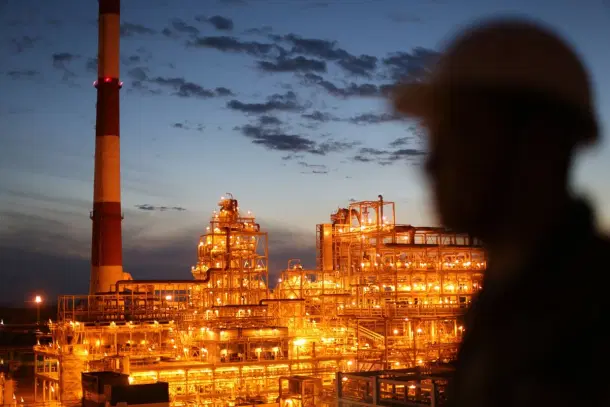World
Explained: The G7 Price Cap On Russian Oil
Swarajya Staff
Sep 03, 2022, 06:06 PM | Updated 06:06 PM IST
Save & read from anywhere!
Bookmark stories for easy access on any device or the Swarajya app.


Leaders of the G7 have been considering implementing a price cap on Russian oil since the spring.
Their goal is to find a way through which they can reduce the amount of revenue Moscow is receiving whilst ensure that this move doesn't cause a surge in global oil markets.
Yesterday, the finance ministers of US, Germany, Italy, Japan, the UK, France and Canada gave the green light for such a policy. It would “build on and amplify the reach of existing sanctions” they stated.
"Officials stress that much work still remains to be done before the price cap can be enacted, however, with key questions outstanding, including the level of the ceiling," according to a report from the FT.
The scheme will be successful only if other importers of Russian oil such as India and China, go along with the scheme. It is highly unlikely that either of them will participate.
Russia stated that they will retaliate against any country that participates in this G7 move by withholding shipments of oil. Russia has some other creative ways to punish countries in Europe.
There are reports that the supply of gas from Nord Stream 1 to Europe has been affected again as the Nord Stream 1 has been shut down by Russia for 'maintenance'. Russia's basic motto being 'you try to damage our revenue source, we will close the taps at the mouth of your energy source."
What have G7 nations agreed to?
They have agreed to finalise a "“comprehensive prohibition of services” that enable the transportation of Russian seaborne crude and petroleum products. Those services — which include shipping insurance —would only be permitted if the products are purchased at or below a price that will be set by a “broad coalition of countries”. The concept has been strongly championed by US Treasury secretary Janet Yellen."
Importers who seek a G7 or EU insurance cover and G7 or EU shipping services, will need to observe this price ceiling. The scheme entails one price cap for crude oil and two separate price caps for refined products.
Are there any risks associated with this policy of price cap?
Well, Russia can technically lower the amount of oil it exports. This move wouldn't necessarily hurt the amount of revenue Russia collects from oil exports as the price of oil will go up.
Something similar has happened with gas exports. The amount of gas Russia exports has fallen but the revenue it collects from this exports has gone up, thanks to the increased gas prices. Same playbook can be used in with regard to oil, to ensure no revenue loss.
US officials claim that a "substantial cut to oil output would cripple Russia’s production capacity."
Oil fields can be shut down and Russia can certainly do that, but that move has its own risks. Shutting down oil fields can harm the reservoirs.
Back when the USSR collapsed, Russian oil output fell from 10 million barrels a day to less than 6 million barrels. It took Russia more than 20 years to restore production back to 10 million barrels per day.
US officials and others who back this price cap are also claiming that Russian exports can also fall if Moscow can't find enough tankers willing to operate without western insurance. G7 countries control 90 per cent of all global shipping insurance.
Why is Russia not too worried?
As the invasion of Ukraine began, Russian oil exports fell by around 1 million barrels per day, primarily due to importers in Europe limiting purchases.
The International Energy Agency had warned that Russia output, which hovered around 10 million barrels per day, could witness a steep fall and go down to 3 million barrels per day.
This hasn't happened, because Russia offered its oil to countries like India at a discounted rate and India, like any other nation would, reached the conclusion that it should accept this offer and purchase Russian oil which is being offered at a discounted rate.
India, like Japan, is a nation with extreme energy insecurity, which was sharpened when India had to stop purchasing oil from Iran, due to America's policies.
Before the invasion, India imported negligible Russian oil but by July, India was importing almost 1 million barrel per day of heavily discounted Russian crude, according to data from Vortexa.
Russia’s ability to maintain exports has helped Russia in avoiding revenue loss. The effect of the price cap on the ground most likely will be, countries like India importing more Russian oil and selling it to Europe.





